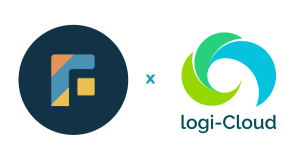In today’s rapidly evolving digital and e-commerce landscape, security has become a crucial factor that every Shopify store must prioritize. As cyber threats continue to rise, many merchants are partnering with professional third-party logistics (3PL) providers to enhance data protection and logistics management. This not only optimizes operational efficiency but also significantly strengthens overall store security.

This article will explore how third-party logistics (3PL) providers enhance Shopify store security on multiple levels, from data protection to logistics safety, helping merchants stay competitive in a rapidly evolving market.
What is a Third-Party Logistics (3PL) Provider?
A third-party logistics (3PL) provider is a professional logistics service company that handles the entire fulfillment process for e-commerce businesses, including warehousing, order fulfillment, and shipping. These providers typically leverage advanced technology and security measures to enhance logistics efficiency while strengthening data and operational security.
How Can a Third-Party Logistics (3PL) Provider Enhance the Security of Your Shopify Store?
Here are specific ways in which a 3PL provider can improve store security across different aspects:
1. Strengthening Data Protection
In e-commerce operations, data is a crucial asset, including customer personal information, payment details, and order records. 3PL providers utilize advanced technologies such as data encryption and firewalls to safeguard sensitive information, preventing data breaches and cyberattacks.

Advantages:
- Enhances customer trust in your store.
- Reduces financial losses and legal liabilities caused by data breaches.
2. Compliance Management to Reduce Legal Risks
In the global e-commerce market, legal regulations (such as GDPR) impose strict requirements on data protection. Third-party fulfillment companies are familiar with relevant laws and regulations, helping merchants remain compliant in data handling and minimize legal risks.
Applicable Scenarios:
- Sales in international markets.
- Stores that involve large-scale data collection.
3. Regular Risk Assessments
Third-party fulfillment companies regularly conduct risk assessments to identify potential security vulnerabilities and proactively propose solutions. This proactive defense strategy helps Shopify stores prepare in advance and avoid potential threats from materializing.

Examples:
- Identifying vulnerabilities in the payment system in advance.
- Fixing security flaws in the logistics process.
4. Logistics Security Assurance
From warehousing to delivery, the logistics process involves various security risks, such as loss, damage, or theft of goods. Third-party fulfillment companies ensure the safe delivery of every product to customers by implementing strict inventory tracking, monitoring systems, and reliable delivery networks.
Logistics Security Measures:
- GPS tracking for shipments.
- Video surveillance within the warehouse.
- Dual verification mechanisms during the delivery process.
5. Strict Customer Verification Processes
Fraudulent orders present a major challenge for merchants, potentially leading to financial losses and wasted inventory. Third-party fulfillment companies help merchants screen high-risk orders by implementing stricter identity verification processes, effectively reducing fraud risks.

Common Methods:
- Address Verification Service (AVS).
- Multi-layered Authentication.
6. Emergency Response Plan
Even with the best security measures in place, security incidents can still occur. Professional third-party fulfillment companies typically have an emergency response plan in place, allowing them to take swift action when a security event happens, minimizing losses and restoring normal operations.
Emergency Plan Includes:
- Swift isolation of affected systems.
- Coordination with relevant parties for resolution.
- A thorough post-incident review after patching vulnerabilities.
7. Employee Security Training
An organization’s security is not only reliant on technology but also on the awareness of its personnel. Third-party fulfillment companies typically provide regular security training to their staff, helping them improve their ability to identify potential threats and thus strengthening the internal security defenses.
8. Technical Support to Resolve Operational Issues
When a Shopify store encounters technical problems during operations, third-party fulfillment companies provide professional technical support to help merchants quickly resume operations, preventing business interruptions caused by system issues.
9. Integration of Security Tools
Third-party fulfillment companies often partner with advanced security tool providers to offer additional protection for merchants. For example, fraud prevention software, payment encryption technologies, and real-time monitoring systems.
10. Continuous System Monitoring
Continuous monitoring is crucial for preventing security issues. Third-party fulfillment companies use real-time monitoring to quickly detect any abnormal activities in the system and take timely action, ensuring the continuous and stable operation of the store.
Why Choose Fulfilldy as Your Logistics Partner for Shopify?

As a leading third-party fulfillment provider, Fulfilldy offers comprehensive logistics and security solutions specifically designed for e-commerce businesses, helping you solve inventory management and logistics challenges.
Core Advantages of Fulfilldy:
- Data Encryption and Risk Assessment: We provide full protection for your store and customer data through advanced encryption and proactive risk assessments.
- Full Transparency in Logistics: Real-time tracking of goods ensures both you and your customers have complete visibility into delivery statuses.
- Omnichannel Integration: Fulfilldy supports inventory and order management across multiple platforms, including Shopify, for seamless operations.
- Rapid Emergency Response: Our professional technical team is available to provide immediate support, ensuring system stability and minimizing disruptions.


